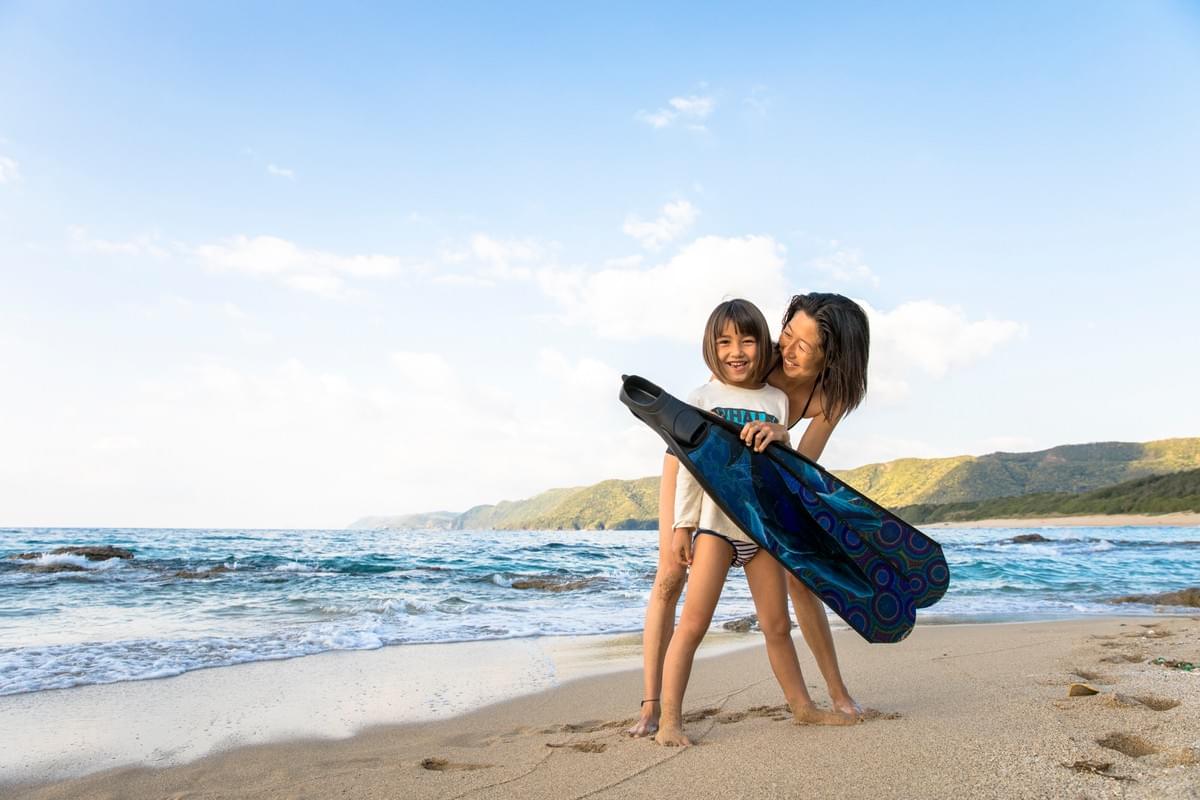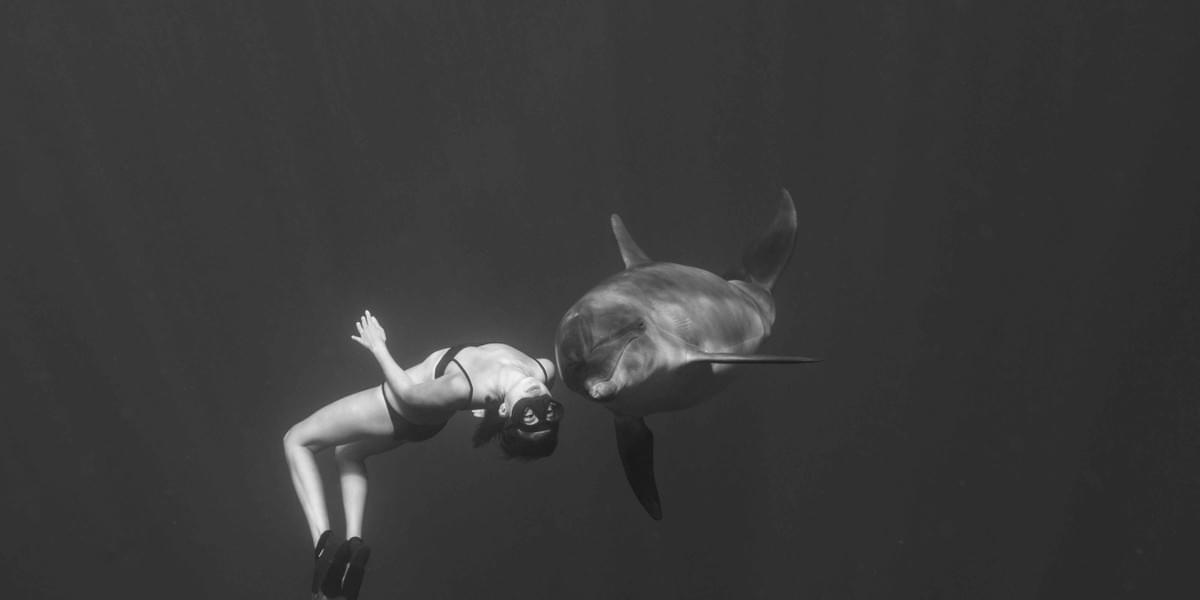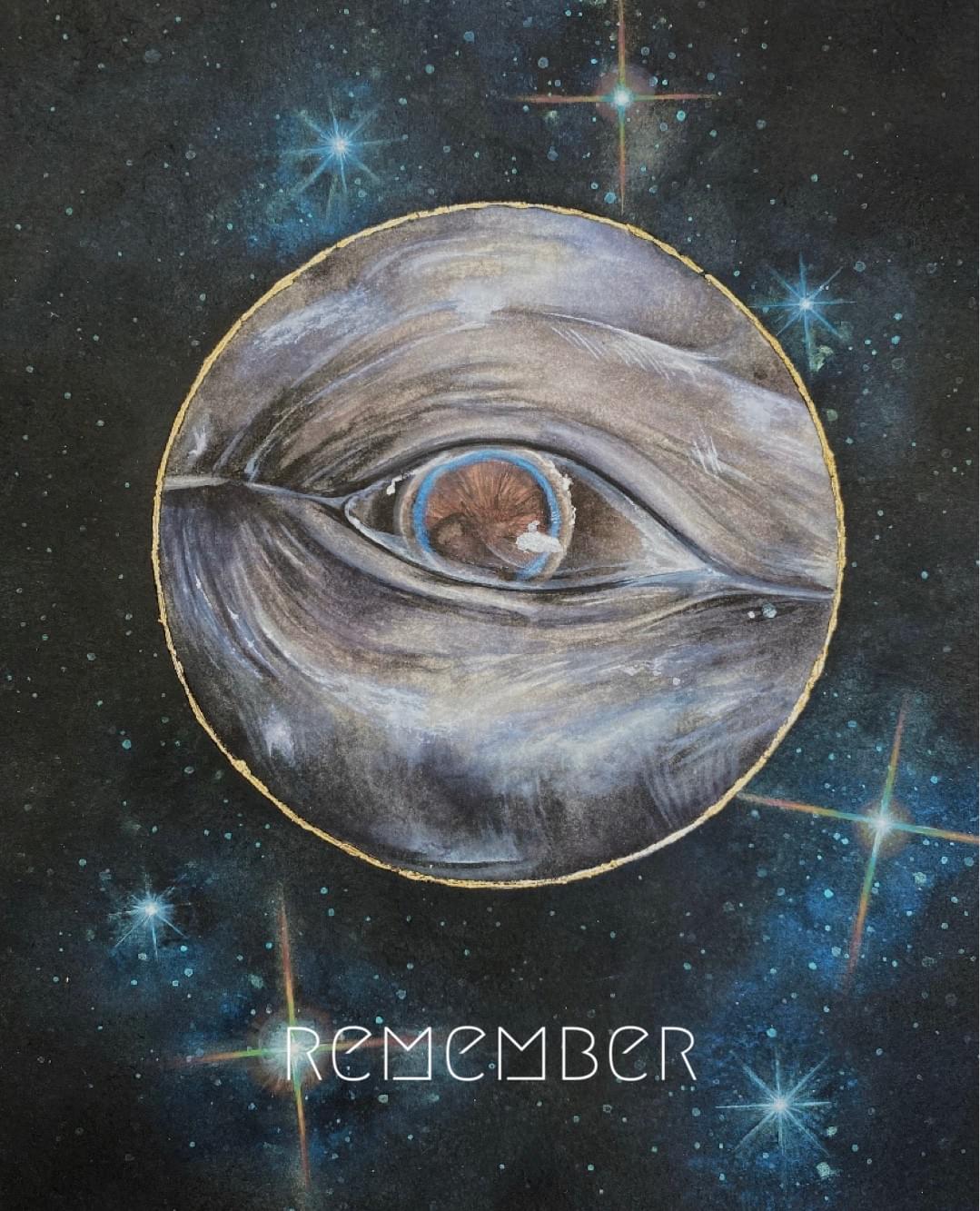
An Awareness Raising Campaign
blending Art, Music & Research
in solidarity with the Dolphins and Whales of Japan
Dolphins saved my life. Now it is time to return the favor.
When I was 14, I underwent a profound depression. A life turning experience, it became the opportunity for rebirth. And as I was blessed with the gift of an amazing teacher on land, so did the dolphins play a similar role in the oceans, guiding me on my journey of spiritual renewal.
Without them, I would not be here today.
Dolphins taught me lessons of Being; Their pure joy and sensuousness are contagious. Deeply empathetic, they inspire unconditional love. They live fully in the present and do not live in judgment. Their language, culture and wisdom make them a civilization in their own right.
Not only did I awaken to myself through their presence, but I also awakened to an ecological consciousness. By connecting to them, I was also entering in relation with the Biosphere and awakening to the Earth as Gaia.Leina Sato - Ocean lover, Freediving Instructor, International Speaker, Author and Mother
“The planet doesn’t need to be saved. It only needs to be loved.”
Introduction
“The place where you are called is where
your deepest joy meets the world’s greatest hunger.”

The world is hungry for love in so many places.
When I asked myself where my deepest joy lay, it was clearly in the Oceans with the dolphins and the whales.
How and where could I put my love and joy in service to the world?
It is when I started to ponder these questions that I heard about the Cove in Taiji over ten years ago.
As a Japanese person who has grown up overseas, I have been continuously confronted by my European and American peers about my view on the plight of the cetaceans in Japan.
For most of them, there seems to be an immediate association with commercial whale hunting and the dolphin drive hunts in the town of Taiji in the Wakayama Prefecture, with the assumption that whale and dolphin meat are still a large part of the Japanese diet- which is far from the actual truth. No one in my immediate circles eats dolphin or whale meat and wouldn’t do so if they were presented with it.
However what continues to baffle me is the number of people in Japan who are blissfully unaware of what takes place in the waters of coastal Japan. Although the information is not exactly suppressed, it is clear that the government would rather keep this as contained as possible.
Ever since I have become aware of this annual event years ago, I have wanted to « do something about it ». It has been tugging at my soul and I have gone through various stages of disbelief, shock, anger, outrage and deep sadness. None of these, however, provided constructive fuel.
I finally realized I needed to shift my focus and come back to the essence, to where it all began:
I wanted to be engaged in activism rooted in spiritual values and reverence, fuelled by a sense of belonging in something larger than myself. An expression of sacred activism that filled me with joy, vitality and active hope. And reflective of what the dolphins had taught me.
Tursiops Aduncus - Bottlenose Dolphin in Ogasawara Islands
Ogasawara is one of the locations in Japan where eco-tourism with wild dolphins and
whales is practiced with respect.
The Project
Philosophy

In Ancient Japan, starting in the Jomon era, Animism was the prevalent world view, from which derived modern religious currents, notably shintoism. Ko-shinto refers to the original animism of Jomon period Japan which is the alleged basis of modern shinto.
Animism, just as the world « Animal » comes from the latin root « Anima », which means soul.
Although this biocentric worldview in harmony with Nature has long been set aside in our modern societies, it is in a sense the foundational soil of the Japanese civilization.
Through Project Anima, we wish to invite the Japanese public to “go back to their roots” and re- create a dialogue with Gaia.
It is as much about honouring the sentienty of the dolphins and the whales as it is about reclaiming the animist heart of Japan, where Nature is revered and vibrant with spirit and soul.Initiating a dialogue with the younger Japanese Generation
It is not our intention to enter into a debate on who and what is right or wrong.
With a focus on young generations and parents, our goal is to share to a wider audience in Japan the current reality of the dolphins and whales living in Japanese waters and by extension the impact of global overfishing and the implications of consuming fish in our day and age.The invitation is to see the Cetacea in a new light through their emotional intelligence, complex social structure and highly developed language.
Beyond the immediate focus on the cause of the dolphins and whales, we wish to draw people’s attention on the inter-connectedness of the Ocean’s systems and the fact that each issue needs to be put into context in a wider perspective as everything is inter-dependent in Nature.
We want to inspire a shift in perception from an anthropocentric world view to a biocentric one:
I.E; where the audience might have only seen a dolphin performing tricks and « having fun », they now see a being with a history, a family, friends, a former home that is the wide Ocean. From a mere resource and commodity for our pleasure and entertainment, the dolphin becomes a sentient creature with equal rights to a meaningful life and freedom.Access to information is empowerment.
We aspire to empower children in forging their own opinion and make informed decisions by encouraging them to raise simple, core questions.
- When I visit a marine park, where do the dolphins and whales come from? - What was his/her life before it arrived here?
- Did it have a family?A name?An identity?
- How does he/she feel now?
- Where is his/her family today?
- What does it mean to consume fish in this day and age?
Broader questions could be explored with the parents:
-What Oceans/Planet Earth do we wish to leave our children? -How do we wish our children to relate to the natural world?Raising awareness in the spirit of reverence,
inter-connectedness and active hope
Engaging people through beauty, art and creativity
FIN KIN
Original Free Dive Fins & more...
Composite and Carbon Free Diving Fins in collaboration with DiveR and Australian Artist Naomi Gittoes
These fins will be commercialised in Japan, the US and Europe with a percentage of the profits dedicated to support the project - notably "Music for the Dolphins & Whales of the Taiji Whale Museum"

Design 1: Ocean Ambassadors
The Sei whale mother and calf and the pod of bottlenose dolphins featured in this piece are meant as ambassadors to the many other species targeted every yearn Japan. The white dolphin in the bottom right represents Angel, the emblematic albino juvenile dolphin that was captured in January 2014 in the Cove and now lives in the Taiji Whale Museum.

Painting 2:
The Cosmic Sea
The Cosmos and the Ocean share much in common; the piece speaks of our kinship with the Living Earth and more than human species as we remember that we all come from Source. The translucent whales and dolphins are also an hommage to the souls of the departed cetaceans.
Painting 3
Web of Life
This piece highlights the inter-dependency and rich biodiversity of the Oceans' Living Systems
in recognition of some of its key players - zooplankton, healthy coral reefs and fish population -
and their essential role in maintaining the health of our Biosphere.
OCEAN INSPIRED APPAREL
In addition to free diving fins, we are also preparing a dedicated and sustainable Japanese brand of ocean-inspired apparel with original designs in collaboration with Japanese and International artists.
More coming soon...!
Sign up for details or
to pre-order!
Contributing Artists
We feel so blessed and excited to have amazing artists from all different horizons
contributing to our upcoming brand with original creations.

"Remember" or
"the Eye of the Whale"
by Hawaii-based Artist Danielle Burnside

Original Art by French Artist Hanna Helsens
Music for the Dolphins and Whales
of the Taiji Whale Museum
An inter-species communication project blending Art, Music & Research
Music is an universal expression, that transcends the need of a shared language and the frontier of race and (potentially) species.
It is a powerful vehicle of emotions and intentions.
Through the pioneering work of artists and researchers, music has been revealed
as a particularly appropriate pathway of communication with the Cetacea.With the support of a local university, we wish to invite Japanese musicians
to participate to an experiment:
Entering into dialogue with the dolphins and whales held in captivity
at the Taiji Whale Museum through Felt Presence and Music
Over the course of a few days, the musician (or band) will spend time by or in the enclosure to feel and connect with the presence of the dolphins and the whales, while meditating on these core questions:
What is their experience?
What is their perception of their condition? Of us humans?
What do we wish to tell them? And what do they wish to tell us?
The musician will then translate his/her perceptions and feelings into sound or harmonics to convey them to the dolphins and the whales (possibly with the use of underwater speakers).We will film and record the interaction, the musician’s expression as well as the dolphins and whales response, should they feel like engaging. We hope that a form of communication/dialogue will emerge. Should the experiment prove meaningful, we can deepen our understanding and relationship by returning over a period of several years.
Although it might not be in our immediate power to support their return to their natural habitat,we can hold the captive dolphins and whales in our thoughts, express compassion and as we lend them our voice, we can recognize them as part of us.
This is where the work of Deep Ecology begins.
A few words about Deep Ecology...
Deep Ecology is a term which was coined by the Norwegian philosopher Aerne Ness.
When activist John Seed stood in between a bulldozer and a tree in the Australian rainforest,
he was struck by a sudden realization: that it was not actually him, the human/persona « John Seed » defending the forest. But rather the intelligence of the Forest, of the living Earth Gaia, protecting herself through him.
In that moment, he awoken to himself as an expression of Gaia, no longer separate but as part of her.
This can be the same for any environmental cause we decide to engage ourselves in:
As we feel moved to speak and act on behalf of our more than human kin - whether it is animal, vegetal or animal- we become a vessel through which Gaia can express herself.
Activism then becomes an act of love and of deep integration
as we begin to reclaim our sense of identity as part of the Living Earth.
Dispelling the illusion of separation that holds us separate from Nature is at once a totally natural and revolutionary process for most humans, at least those of us who were born into a westernized, modern environment.
Being grounded in the knowing that we are One, fully supported and loved, allows us to face the "dark" places in our inner and outer environment.
Original Art by Artist Hanna Helsens
© 2019








